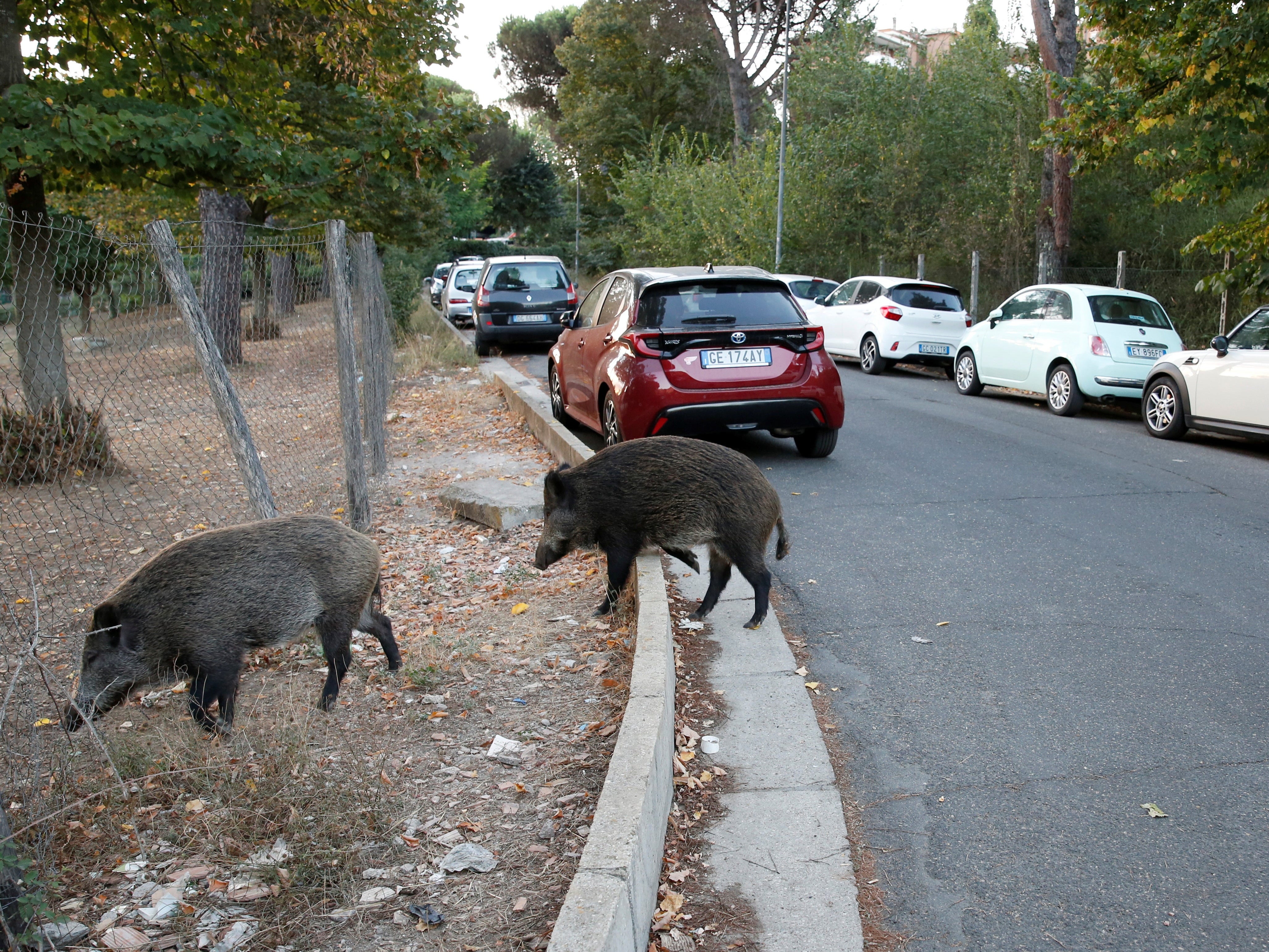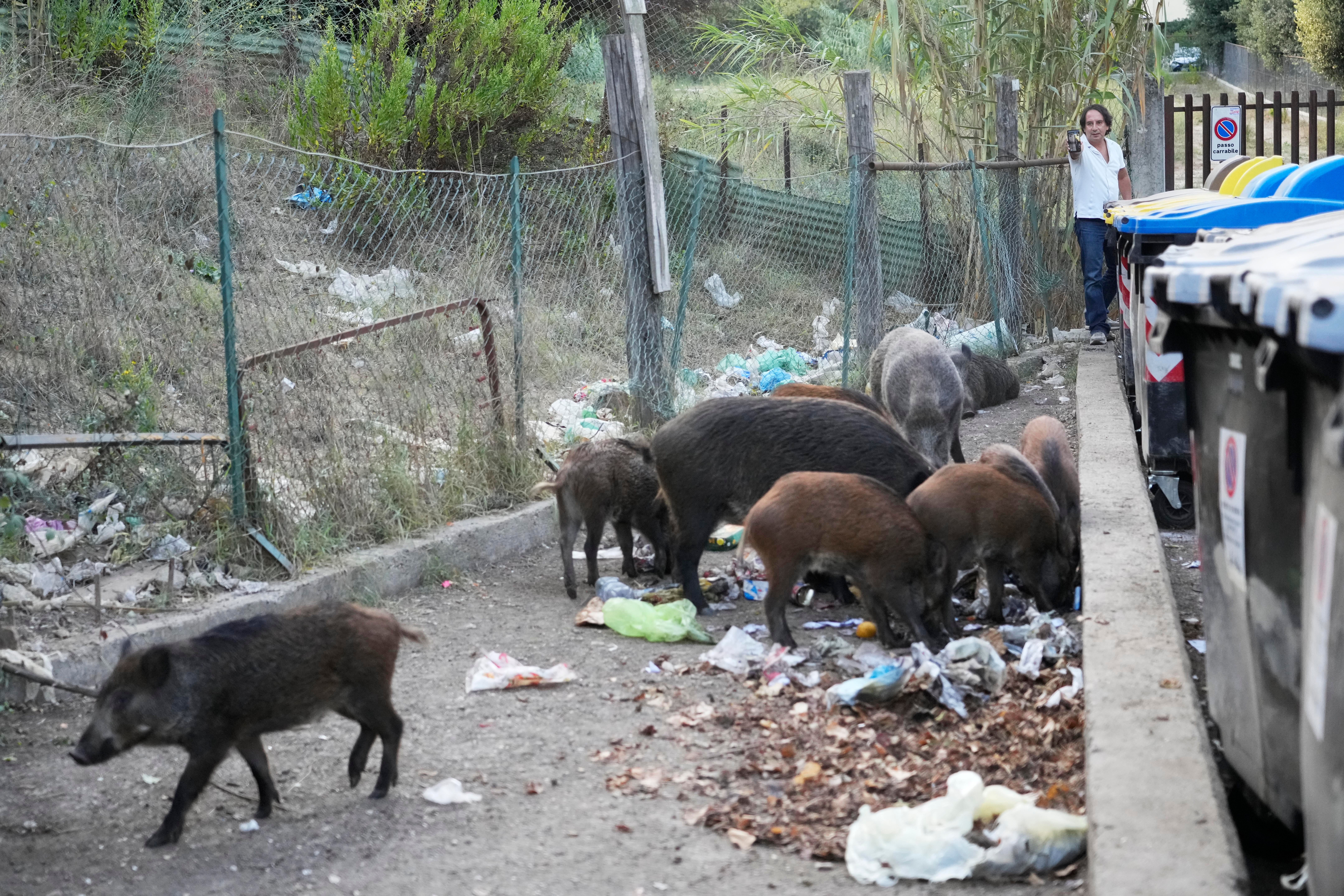Rome bans picnics in bid to stop wild boar invasion
The health authorities have suggested an emergency slaughtering plan

Picnics have been banned and bins fenced off in large parts of northern Rome as health authorities seek to crack down on the wild boar population after African swine fever was detected in a deceased animal.
Feeding or approaching the animals has also been banned, while people who have walked through farmland or nature reserves in the affected areas have been told to disinfect their shoes.
It comes after towns in Rome imposed a curfew to curb wild boar incursions which led to numerous late night attacks on residents.
African swine fever, which is fatal to pigs and wild boar but harmless to humans, was detected in the body of a dead boar in the Insugherata nature reserve on Thursday.

It was the first time a case had been identified in the Italian capital after the disease was found boar in the northern Piedmont region in January, prompting the government to appoint a special health official to impose measures to eradicate the illness.
The affected anti-boar “red zones” in Rome are located in the north and north-west of the Italian capital, including an area close to Vatican City.
About 23,000 wild boar live in and around Rome, according to estimates from Coldiretti, the farmers’ association. The animals are often seen in parks, walking down the road or searching for food in overflowing rubbish bins, mostly in districts in the north of the city.
Residents in several neighbourhoods last week imposed a nightly “curfew” after a spate of attacks by wild boar. One woman suffered minor injuries after being trampled to the ground by the animal which she claimed was on top of her head.
The Italian health minister, Roberto Speranza, said the situation would receive “maximum attention”. Andrea Costa, a health ministry official, said the government was also discussing a “slaughtering plan” to reduce the wild boar population.
“I respect the sensitivities of animal rights activists and environmentalists, but we are facing an emergency and it must be addressed with emergency measures,” he told the state broadcaster, Rai.
Join our commenting forum
Join thought-provoking conversations, follow other Independent readers and see their replies
Comments
Bookmark popover
Removed from bookmarks